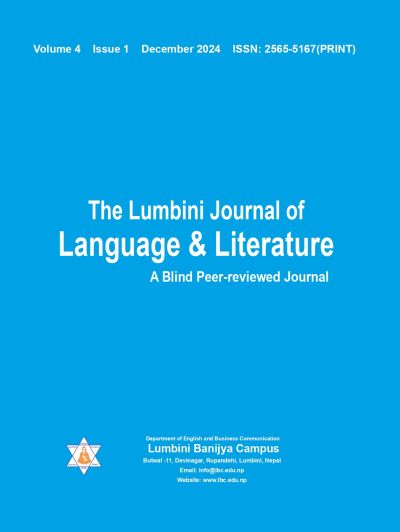Challenges Faced by Bajjika-Speaking Students in Learning the English Language
DOI:
https://doi.org/10.3126/ljll.v4i1.73917Keywords:
English language learning, Bajjika, mother tongue interference, culturally responsive teaching, NepalAbstract
The qualitative study discusses in detail some of the complex challenges Bajjika speaking students face with regard to learning the English language. Based on the interpretive paradigm, this research will be using the phenomenological approach to tap into detailed insights on the factors affecting language acquisition among Bajjika-speaking students. Using a purposeful selection criterion, four students studying at public schools in Sarlahi district, Nepal, were purposively selected, and the researcher conducted in-depth interviews and informal conversations. The results pointed out complex issues significantly affecting the process of learning the English language among Bajjika speakers, including mother tongue interference regarding pronunciation, grammar, and sentence structure because of the similarities and differences in the Bajjika and English linguistic systems. Recommendations from the study undertaken include preparing and implementing teaching materials that are culturally relevant, expanded teacher training programs targeting linguistic diversity, and greater community involvement in support of language education initiatives.
Downloads
Downloads
Published
How to Cite
Issue
Section
License
The copyright for articles published in journal are retained by the authors with first publications right granted to the journal.




